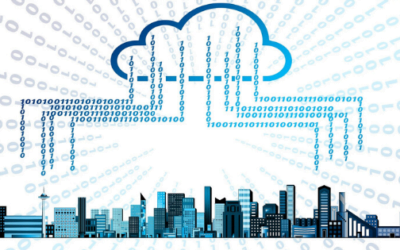Cloud Computing for your Business
A business used to have a large room with a designated group of people for all the IT necessities. However, with cloud computing, one can now have them all via the internet at lesser cost and less number of employees to manage the operation.
Why Cloud Computing?
Hardware and software resources each business needs for its daily operations are very costly. Consider the people you will have to hire to maintain its productivity and all? But with cloud computing, everything IT related, as well as marketing, can be handled with a snap.
Since everything is in the cloud, there is no need to acquire physical machines and all. You can access all the data and applications needed wherever you are located, using any device with internet connection. Hence cost is cheaper since you will only be paying for what you use.
Before you question its security, no fret! Cloud providers implement the best security standards and procedures when it comes to data security. And unlike when you store your data on a physical storage which when corrupted is more likely non-usable, cloud computing will give you the most efficient way to backup and restore all your data and applications in the most easy and fast way.
One of its advantages is being flexible. Cloud computing will equip you with the infrastructure, tools, solution and type of control depending on the business’ demands and needs. So all you need to focus on is the core operations of your business. Therefore, businesses that use cloud computing are able to steer more smartly compared to non-users.
Benefits Of Moving To The Cloud
Cost
Since businesses won’t be needing hardware and software, setting them up to run an on-site data center, there will be no need to acquire a specific room for all those stacks of servers which eats up electricity, and no need to invest in human resources for managing the infrastructure. You will simply pay as you go depending on a subscription-based model that will fit into your cash flow.
Speed
Cloud computing services are all self service, so in just a click, you can get your data in a few minutes.
Productivity
Instead of managing your hardware setup, software patching, and all those time consuming IT management chores, the staff can focus on more crucial business goals.
Competitiveness
Cloud computing services perform in a network of secure data centers world wide regularly updated to the latest generation of fast and efficient computing hardware.
Increased Collaboration
Data can be accessed in any device that can connect to the internet, hence teams can do more together by sharing documents anytime anywhere for real time updates and collaboration visibility without actually meeting up.
On-the-go
Cloud computing services offer mobile applications that will let you work anywhere whenever which leads to employees being able to enjoy their work-life balance that suits them.
Document Control
With many people collaborating and engaging in one document, watertight document control is highly needed. And because of cloud computing, there is no more need to throw back and forth file attachments through email which ends up with a mess of file contents, format and titles. All files will be centrally stored where everyone can see it. There will be no need to edit and save since any collaborator will be visible to everyone along with the edits done.
Reliability
Hard drives or flash drives are no longer needed. Everything can automatically be saved and backed up. Cloud computing also has disaster recovery.
Security
Cloud providers offer a broad set of policies, technologies, and controls that will make sure your data, applications, and infrastructure are highly secured from any form of threat.
Types of Cloud Computing
There are three types of cloud computing differentiated by the way or where data can be deployed.
Public Cloud
A type of cloud that is owned and operated by a third-party cloud service provider. The resources can be acquired right through the internet using your own unique account. This type is usually pay-as-you-go. However, businesses may use the platform under the terms of the provider, there might be some difficulties getting or claiming the assets if changing providers. If the provider make important changes, the business will have to make infrastructure changes on short notice.
Private Cloud
The cloud computing resources used exclusively by one business. Same as the public cloud, anyone can access data anywhere as long as they are authorized users. And since this is more secure and controlled, cost is higher.
Unlike in a public cloud, since it is exclusive, there is no risk of any abrupt disruptions. Businesses can move their data and applications whenever they want.
Hybrid Cloud
This type is a combination of a public and a private cloud. They are designed to allow the two platforms to interact smoothly and continuously. Hybrid clouds can produce scalable computing power like a public cloud, with the security and control of a private cloud.
Cloud Computing Services
Cloud computing is categorized to the major functions they serve. Understanding their differences would help a business choose or narrow down the options to the best that suits their needs.
Infrastructure as a Service (Iaas)
This is the most comprehensive and flexible type. Providing an instant computing infrastructure over the internet.
IaaS providers manage the servers and data storage in a data center, but let the business purchase, install, configure, and manage their own software including operating systems, middleware, applications, business analytics, and development tools.
Platform as a Service (PaaS)
PaaS is the one to provide the framework needed by the business. Along with the servers and data storage, Paas will provide you with the middleware, development tools, business intelligence (BI) services, database management systems needed to create software applications. This type of cloud computing is suitable for companies that develop software and web-based applications.
Software as a Service (SaaS)
This is the most common form of cloud computing. SaaS is a fully developed software that is ready for purchase and use over the internet on a subscription basis, though there are applications that do not need installation and are accessible directly through the internet.
For your cloud computing needs, we personally recommend Amazon Web Services. With Amazon Web Services we are happy to perfectly integrate this into your business so that all of your cloud computing needs can be met!
Contact us for a free consultation and to learn about how Cloud Computing can benefit your business!




0 Comments